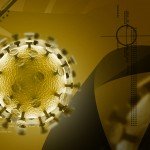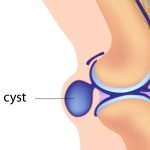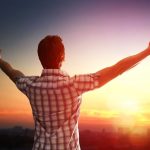Staying Motivated: Achieving Long-Term Success Through Intuition
SERENA GOLDSTEIN, ND
We generally tend to seek help when symptoms subjectively affect our daily lives, when self-medicating doesn’t feel like enough, or when we’re considering worst-case scenarios. If our life before this stage contributed to our current condition, then new approaches to healing will yield different results. We tend to make changes to get rid of what’s present, and while the disappearance of a symptom may be a good sign, the symptom could have stemmed from other processes that need to be addressed, regardless of whether they seem to interfere in our life. In other words, when we don’t feel good, we tend to go get help, but then when we feel better, those same habits that made us not feel good in the first place can crop up again. The issue becomes keeping up healthful habits over the long term. Expanding the definition of healing beyond the physical realm can help establish additional individualized markers of healing – parameters that can not only help patients remain motivated, but also to take ownership of their lives from a place of trust and knowing they’re exactly where they need to be.
Perceptions of Health
According to the World Health Organization, “Health is a state of complete physical, mental and social well-being and not merely the absence of disease or infirmity.”1 This definition has been considered by some to be overly ambitious, however, as “healthy” people can still experience minor symptoms from time to time. In addition, a disability or deformity should not always be considered “ill health,” and certain positive feelings can sometimes be related to a psychiatric imbalance (eg, mania).2 Such discrepancies in the WHO’s definition of health can cause cognitive dissonance in both doctor and patient.
By the time symptoms occur, processes have already been in place, laying the foundation for chronic disease (symptoms lasting longer than 3 months). While the patient would like to experience relief as soon as possible, sometimes wondering what they might have done to contribute to their symptoms (as many concerns are influenced by lifestyle) can bring up a range of emotions that encompass not doing the right thing. The culture of Western medicine includes language (and expectations) that can shame the patient (or be perceived as such), and in turn the patient may blame their doctor, even when the practitioner was doing his or her best. Of course, there is no single way of “knowing” the right way to practice medicine, and it’s also not always possible to “know.”3 A patient’s lifestyle choices are also perhaps the best ones the patient knew of at the time from various resources. The internet can provide numerous options for addressing health concerns. People need to be willing to consider and perhaps also question options beyond what they’re told by their practitioner.
Ideal health and expectations can also easily be viewed as an image in a patient’s mind – maybe their younger self or someone else. The problem with this, of course, is that who they are at this moment in time is not who they were days, weeks, years, or even decades ago; and they certainly are not someone else. Nonetheless, they might use this approach, and either they don’t get the results they want, or they do get results but their lifestyle gets in the way and they can’t maintain it over the long term. As Kenneth Boyd suggests, “The problem about conceiving health in terms of fixed norms such as those of biochemistry, or the ideal of the athlete [for example], is that it assumes that the objective observer’s viewpoint [ie, society or past self] is the true one, and discourages those who adopt it from seeing themselves as actors or agents, rather than patients who are acted upon … If we want to gain a more adequate understanding of the meaning of ‘health,’ … we may have to be prepared to offload rather less, and take responsibility for rather more, of our minds.”2 This can mean that we now need to question beliefs that once gave us ideals, and embrace moving forward into new beliefs, values, and how we define health.
Using Motivation & Intuition
Motivation, defined as the desire to act in service of a goal, is a crucial element in setting and attaining one’s objectives.4 Extrinsic motivation is seen as a perceived reward (which is likely to change over time), while intrinsic motivation comes from within, ie, is part of our values. Increasing evidence suggests that while outside factors can get us going (eg, the promise to look or feel a certain way if we take a certain action), they can bring a cost to learning and hinder the development of autonomous, self-sustaining behavior.5 Here lies the balance between listening to/understanding one’s self and one’s self-perception in relation to personal goals. Intrinsic motivation can encourage a person to not just continue to change but also to re-define their life- and health-related values, whereas extrinsic motivation may encompass tangible results that provide both confidence and a knowing that they’re on the right track that is specific for them.
Intuition is an inner knowing, ie, making the right decision without intended analytical thought. It is commonly described as a sensation or feeling one has when making decisions, and it is a concept that has intrigued philosophers and scientists since at least the times of the ancient Greeks.6 Intuition is also described as looking at patterns and wholes, as being great for decision-making, or perhaps even a way to figure out what to analyze.7 Conversely, the conventional paradigm of health, and to some extent extrinsic motivation, has us looking to others to find our own ideals. Intuition requires us to trust in a way that may not yet have a so-called rational explanation. Understanding what we need may not just take time to learn, but also time to trust; yet it’s in understanding our own ideals that we can potentially balance out how we would like to fit in the world around us.
Redefining Markers of Healing
The Ancient Egyptians used to say that school is where you learn the skills, and the outside world is the test. Similarly, learning about the unique ways our bodies function, the space to ask “why,” and knowing that what we need requires trusting intuition, for example, can help direct both care and conversations when interacting with those outside of self. As it seems, dichotomy helps not just to understand balance, but also to learn about what we need and desire in life. In health, for example, symptoms can promote healthier changes, gratitude for where we are (or what not to take for granted), and perhaps an understanding that life happens for us, and not necessarily to us. In fact, people who can see the positive side of regrets or have came to terms with regret have been found to have significantly higher life satisfaction and physical health, generally speaking.8
Similarly, and perhaps something we didn’t choose, is the extent to which our soul may have chosen to take on generational trauma – a growing field that studies cultural populations as a whole in terms of their values, how they live their lives, how they handle adversity, and so forth, especially after significant events. The effects of events such as the Civil War, slavery, the Holocaust, and displacement of American Indians can range from physical (eg, methylation issues) to mental and social, including but not limited to food hoarding, anxiety and shame, risky health behaviors, high emotional neediness, and living in “survival mode.” Consider mapping out your family lineage as much as possible, including biologically and aspects like behavioral patterns, perceptions around health and/or success, and how each relative dealt with adversity and/or confrontation.9 Events of the past were literally not our fault in this lifetime; however, we have the free will to live our lives as we desire.
One of our principles in naturopathic medicine is to inspire hope and healing. Treating everyone as individuals also means respecting that they have their own healing time, not only in their physical body, but also in the mental, emotional, and spiritual body. Frustrations are just as important as the results because they show where we need to reflect. Therefore, markers of healing could include walking away from a situation, saying “no,” making a shift in one’s groups of people, or taking more time for oneself, to name a few, especially when it happens naturally. Consider having people make notes every week when these “ah-ha” moments occur, and to then take weekly time for reflection.
We do our best as naturopathic doctors to educate, heal, and prevent; yet, just as there are unknowns in life, so there are unknowns in our health. Learning to trust who we are is a critical step for then discovering what we need from the outside world according to its norms and standards. This includes the knowing that we can also look elsewhere for answers! For perhaps it’s in this – the sense of well-being and knowing of self – where everything really is so much about journey, and not solely the destination.
References:
- Conti AA. Historical evolution of the concept of health in Western medicine. Acta Biomed. 2018;89(3):352-354.
- Boyd KM. Disease, illness, sickness, health, healing, and wholeness: exploring some elusive concepts. Med Humanit. 2000;26(1):9-17.
- Cunningham W, Wilson H. Shame, guilt and the medical practitioner. N Z Med J. 2003;116(1183):U629.
- Psychology Today. Motivation. Available at: https://www.psychologytoday.com/intl/basics/motivation. Accessed February 7, 2021.
- Legault L. Intrinsic and Extrinsic Motivation. November 30, 2016. Encyclopedia of Personality and Individual Differences. Available at: https://link.springer.com/referenceworkentry/10.1007%2F978-3-319-28099-8_1139-1. Accessed February 7, 2021.
- Association for Psychological Science. Intuition – It’s More Than a Feeling. April 21, 2016. Available at: https://www.psychologicalscience.org/news/minds-business/intuition-its-more-than-a-feeling.html. Accessed February 7, 2021.
- Boston College. Trust your gut: Intuitive decision-making based on expertise may deliver better results than analytical approach. December 20, 2012. Science Daily. Available at: www.sciencedaily.com/releases/2012/12/121220144155.htm. Accessed February 7, 2021.
- Torges CM, Steward AJ, Miner-Rubino K. Personality after the prime of life: Men and women coming to terms with regrets. J Res Pers. 39(1):148-165.
- DeAngelis T. The legacy of trauma. American Psychological Association. 2019;50(2):36. Available at: https://www.apa.org/monitor/2019/02/legacy-trauma. Accessed February 7, 2021.

Serena Goldstein, ND is a naturopathic doctor who uses her knowledge of conventional and natural medicine, psychology, ancient medicine, spirituality, and intuition to understand physical and emotional patterns in her patients’ health and to bring insight that enhances motivation and long-term success. In addition to clinical practice, Dr Serena has shared her expertise on outlets such as MindBodyGreen, Forbes, and Shape.com, has appeared on NYU Doctor Radio Sirius XM, is a writer and Advisory Board member for Natural Practitioner Magazine, and has presented at venues such as the American Cancer Society, Integrative Healthcare Symposium, and the Autoimmune and Endocrinology Conference at NUNM.









